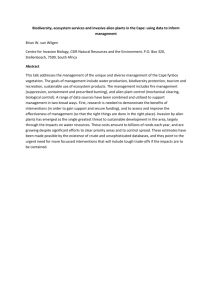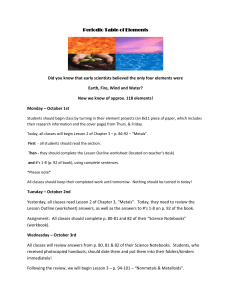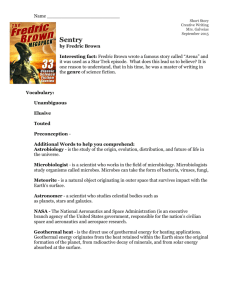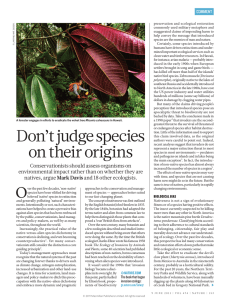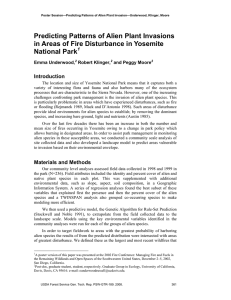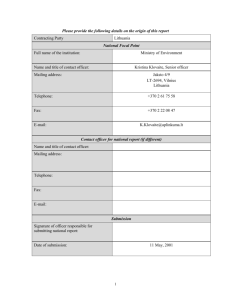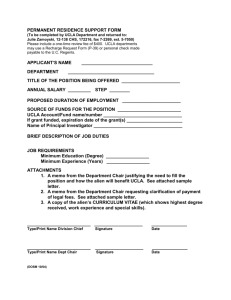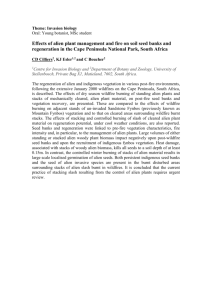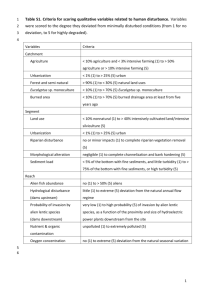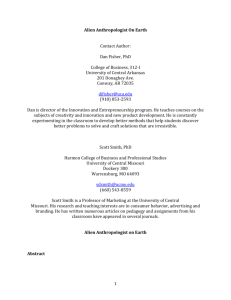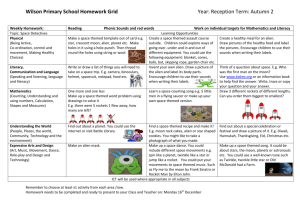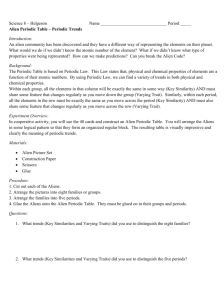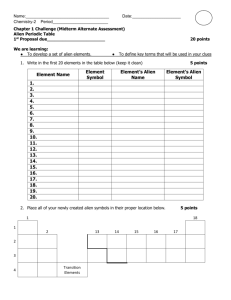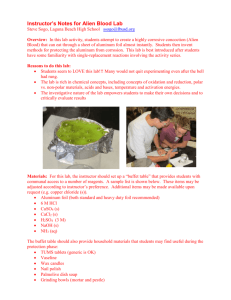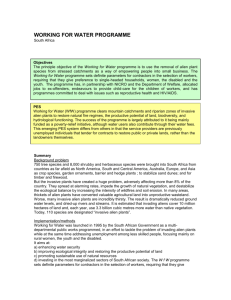Following alien birds along the pathway to impact
advertisement
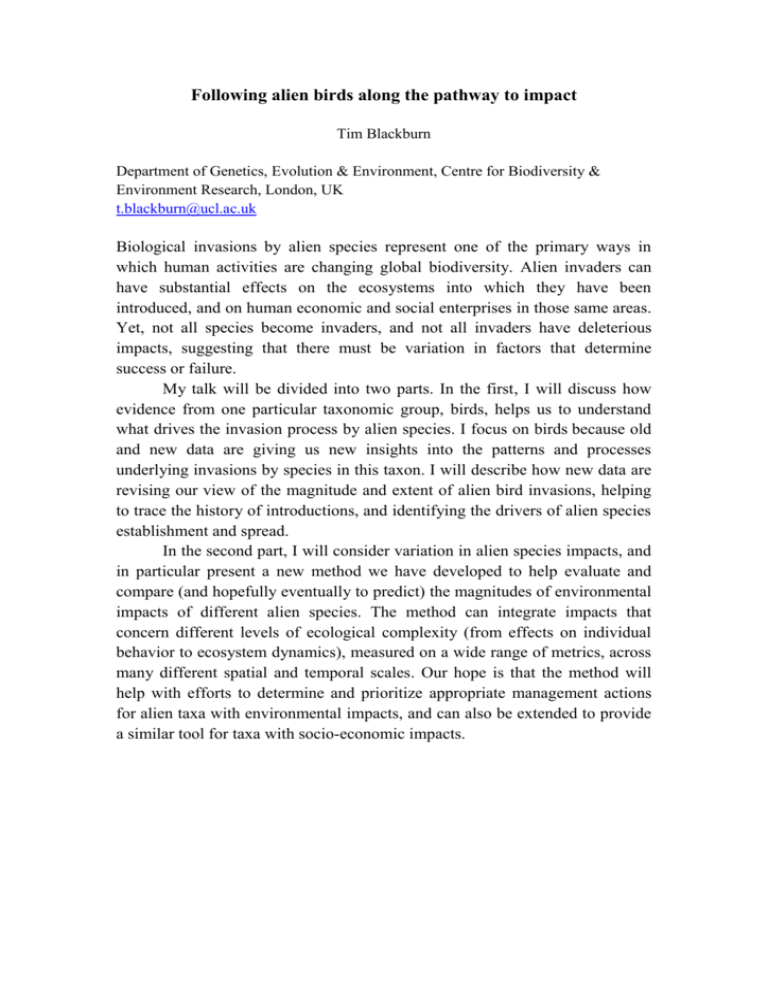
Following alien birds along the pathway to impact Tim Blackburn Department of Genetics, Evolution & Environment, Centre for Biodiversity & Environment Research, London, UK t.blackburn@ucl.ac.uk Biological invasions by alien species represent one of the primary ways in which human activities are changing global biodiversity. Alien invaders can have substantial effects on the ecosystems into which they have been introduced, and on human economic and social enterprises in those same areas. Yet, not all species become invaders, and not all invaders have deleterious impacts, suggesting that there must be variation in factors that determine success or failure. My talk will be divided into two parts. In the first, I will discuss how evidence from one particular taxonomic group, birds, helps us to understand what drives the invasion process by alien species. I focus on birds because old and new data are giving us new insights into the patterns and processes underlying invasions by species in this taxon. I will describe how new data are revising our view of the magnitude and extent of alien bird invasions, helping to trace the history of introductions, and identifying the drivers of alien species establishment and spread. In the second part, I will consider variation in alien species impacts, and in particular present a new method we have developed to help evaluate and compare (and hopefully eventually to predict) the magnitudes of environmental impacts of different alien species. The method can integrate impacts that concern different levels of ecological complexity (from effects on individual behavior to ecosystem dynamics), measured on a wide range of metrics, across many different spatial and temporal scales. Our hope is that the method will help with efforts to determine and prioritize appropriate management actions for alien taxa with environmental impacts, and can also be extended to provide a similar tool for taxa with socio-economic impacts.
